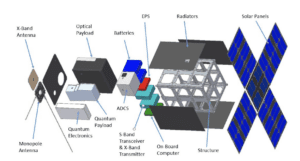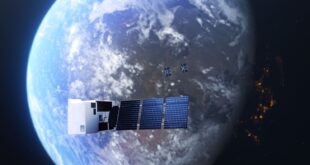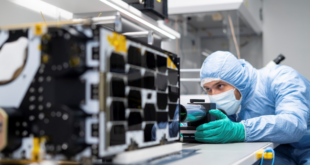
Aarhus, 7 July 2022. – Secure communications cubesat, Speqtre, has passed its critical design review meaning that a full scale model of the satellite can now be built. Speqtre is being developed by the UK-based Science and Technology Facilities Council’s RAL Space and Singaporean quantum communications company, SpeQtral.
The satellite platform design comes from Dutch ISISPACE (Innovative Solutions in Space). The Speqtre mission is led by RAL Space, while SpeQtral is providing the QKD hardware. RAL Space overviews the space components and delivers the optical payload which will beam QKD signals to Earth.
The aim of the mission is to demonstrate quantum key distribution (QKD) from space. QKD is a way of encrypting data to make them secure and unhackable even by quantum computers. The global market for the technology is thought to be worth up to US $15 billion over the next ten years.
Satellite quantum key transfers could be utilized by governments, commercial companies, critical infrastructure and financial institutions, among others. The technology already works well on Earth. However, the challenge is to make it small and robust enough to endure harsh space conditions and reliably send signals back to the ground. Speqtre aims to qualify QKD for use in space.
The UK Department of Business Energy and Industrial Strategy has invested nearly US $6 million in the project. The mission is due to launch in 2024.





